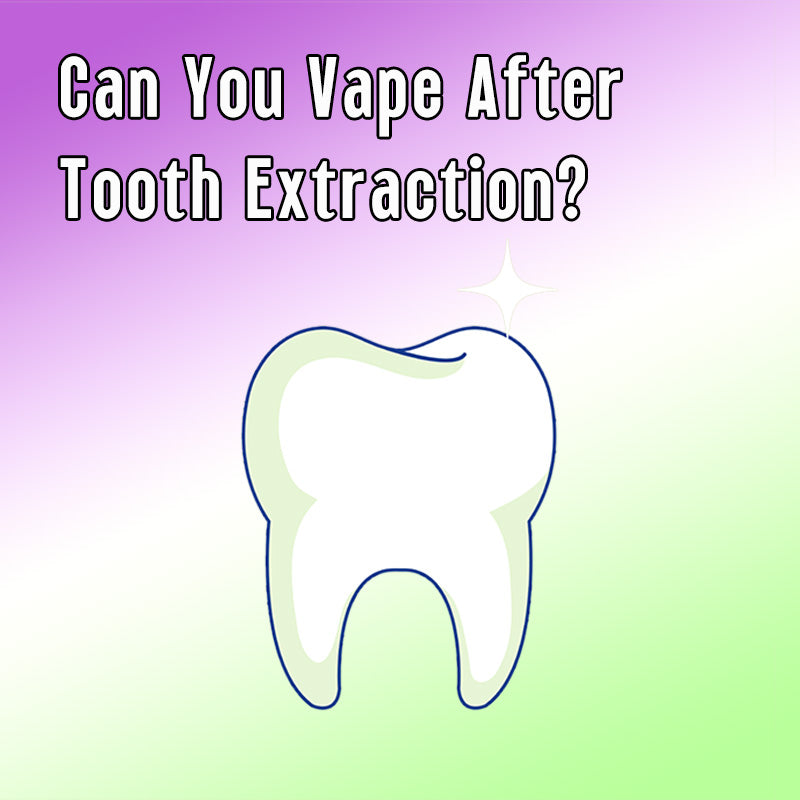Is There Sugar in Vapes? Everything You Need to Know
The candy-like flavor of a strawberry or gummy vape often makes users wonder: Is there sugar in vapes? It's a fair question. Many vapes taste sweet, leading some to assume that sugar is used. The truth behind that sweetness is more complex than most people realize.

Do Vape Juices Contain Actual Sugar?
Most reputable vape juices do not contain sugar. What Makes Vapes Sweet? To understand why, let's first look at what vape juice is made of.
Typical Vape Juice Ingredients
The standard ingredients in most e-liquids include:
-
Propylene Glycol (PG): A thin, flavorless liquid that carries taste.
-
Vegetable Glycerin (VG): A thicker substance responsible for vapor clouds and subtle natural sweetness.
-
Nicotine (optional): The addictive substance found in tobacco.
-
Flavorings: Artificial or natural compounds that create various flavors.
-
Sweeteners: Non-sugar additives like sucralose to enhance flavor.
Why Sugar Is Avoided
If sugar were used in vape juice, it would caramelize during the heating process, producing harmful chemicals and leaving sticky residue on the coils. This can shorten coil lifespan, impair vapor production, and result in a harsh, unpleasant taste. Manufacturers avoid sugar to protect the device and enhance the overall vaping experience.
Why People Think There’s Sugar in Vapes
The sweet taste of many e-liquids leads people to believe that sugar is involved. Here’s why this misconception exists:
Sweet Flavors Resemble Sugary Foods
Many e-liquids come in dessert-like or fruity flavors, such as vanilla, strawberry, or cotton candy. These sweet tastes can remind vapers of sugary treats, prompting the assumption that sugar is used.
Sweeteners Mimic Sugar
The sweetness in e-liquids is often created using artificial sweeteners like ethyl maltol and sucralose. These compounds are designed to mimic the taste of sugar, but they are not the same as actual sugar.
Common Misunderstanding
Since the end result tastes sweet, it’s easy to confuse the sensation with sugar. However, the source of the sweetness usually comes from non-caloric sweeteners.
How Sweeteners Work in Vape Juice
Although vape juices don’t contain sugar, sweeteners are added to achieve the desired taste. Here’s how they work:
Artificial Sweeteners vs. Sugar
Sweeteners used in e-liquids, such as sucralose or ethyl maltol, are much sweeter than sugar but contain no calories.
Flavor Enhancement
These sweeteners interact with the flavoring compounds in e-liquids to enhance the overall taste. They create the sweet, satisfying flavor that many vapers enjoy, especially in dessert or candy flavors.
Does Vaping Affect Blood Sugar Levels?
This question matters especially for diabetic users. Since we've established that vapes are sugar-free, you might assume they can't possibly impact blood sugar.
Most studies indicate that vaping itself doesn't directly raise blood glucose the way consuming actual sugar does. However, nicotine does affect insulin sensitivity and can cause temporary blood sugar fluctuations. If you have diabetes or are concerned about blood sugar management, it’s important to talk to your doctor before vaping.
FAQ
Q1: Do disposable vapes contain sugar?
No, disposable vapes use flavorings instead of real sugar.
Q2: Can vaping cause tooth decay like sugary drinks?
Not directly, but certain sweet flavorings may affect oral health over time.
Q3: Are there sugar-free vape brands?
Yes, most reputable brands today use sugar-free formulations.
Conclusion
So, is there sugar in vapes? No. Modern e-liquids use specialized sweetening agents rather than actual sugar, making them technically sugar-free. This solves the mechanical problems sugar would create, but it doesn't eliminate all concerns.
Quality and regulation matter enormously—counterfeit products may contain unexpected additives. Choose products from manufacturers who prioritize transparency and testing. Brands like ZOFO, which comply with industry standards, deserve your attention.
Understanding what's actually in your vape helps you make informed, responsible choices.


